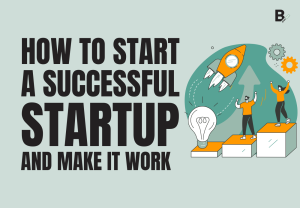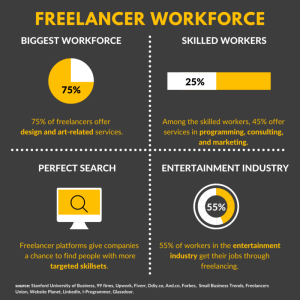How to Start a Lucrative Tech Career in Nigeria Without a Degree
Starting a lucrative tech business in Nigeria is normal cope and mindset of every individual in Nigeria, a bigger dream to be better and famous, a better career to achieved there possible needs and want as an individual. But the main crises is how are they going to start these these tech Career.
Its quite hard and difficult to start a a newbies and freshers not knowing where and how to start a tech career gaining more skills and knowledge in the Tech market. With the help of these article i will detailed step by step how you can successfully start a tech career in Nigeria.

The Future is Tech – With or Without a Degree
The Nigerian tech space is booming, and it’s creating thousands of opportunities for smart, ambitious individuals with or without a university degree.
For decades, traditional jobs required formal education, certificates, and years of academic training. But the digital revolution has shifted that narrative. Today, skills, not degrees, are what matter most in the world of technology.
From software developers in Lagos to UI/UX designers in Abuja and data analysts working remotely from Enugu, Nigeria is witnessing a wave of self-taught tech professionals breaking into high-paying jobs.
This article is a step-by-step, practical guide for anyone who wants to **start a lucrative tech career in Nigeria without a university degree.
Why a Degree is No Longer Mandatory in Tech
a. Skills Over Certificates
The tech industry cares more about what you can do than what you studied. Many hiring managers focus on portfolios, GitHub activity, personal projects, and problem-solving abilities. Your capacity to build, debug, or design outweighs your academic background.
b. Rapid Technological Change
The tech world evolves so quickly that universities can’t always keep up with the latest trends. Online resources, short courses, and bootcamps are filling that gap and helping people get job-ready faster.
c. The Rise of Remote Work
Remote tech roles have exploded, especially since the COVID-19 era. Many companies local and international now hire purely on merit. If you can prove your skills, you can land jobs from anywhere in the world.
2. Understanding the Tech Ecosystem: What Are Your Options?
Before jumping in, it’s important to explore the various tech career paths available. Tech is not just about coding. There are both technical and non-technical roles.
Technical Roles (Hands-on with code or systems):
Software Developer (Frontend, Backend, Full Stack)
Mobile App Developer
Data Analyst / Data Scientist
Cloud Engineer
Cybersecurity Analyst
DevOps Engineer
AI/ML Engineer
Non-Technical Roles (Still part of tech, but not heavy on code):
UI/UX Designer
Product Manager
Technical Writer
Digital Marketer (SEO, Social Media, Email Marketing)
Business Analyst
Scrum Master / Project Manager
How to Choose the Right Filed
Choosing the right field is crucial and should be based on your:
Interests
Strengths
Learning style
3. Self-Assessment: Discovering Your Strengths and Interests
To succeed in tech, you must find your sweet spot. Ask yourself:
a. Am I analytical and detail-oriented?
You may thrive as a developer, QA tester, or data analyst.
b. Do I enjoy solving problems and building things?
Software development, DevOps, or AI could be great for you.
c. Do I have an eye for design and enjoy aesthetics?
Consider UI/UX design or frontend development.
d. Do I like organizing teams or products?
You may excel as a product manager or scrum master.
4. Set a Clear Goal: Choose a Career Path
Once you understand your strengths, pick one career path to begin with. Trying to learn everything at once is a common mistake.
For example:
If you choose Frontend Development, focus on HTML, CSS, JavaScript.
If you pick Data Analysis, focus on Excel, SQL, and Python.
If you choose UI/UX Design, focus on user research, wireframes, and design tools.
Be focused. One skill at a time.
5. Build Foundational Knowledge: What You Need to Learn
Let’s briefly outline what a few popular paths require:
Software Development
HTML, CSS, JavaScript
Version Control (Git/GitHub)
Frameworks (React, Node.js, Django, etc.)
APIs and Databases (MySQL, MongoDB)
UI/UX Design
Design Thinking
Wireframing Tools (Figma, Adobe XD)
Prototyping
User Testing
Data Analysis
Microsoft Excel (formulas, pivot tables)
SQL (data querying)
Python (Pandas, NumPy)
Data Visualization (Power BI, Matplotlib)
Cybersecurity
Networking fundamentals
Ethical hacking basics
Firewalls, encryption, and security protocols
6. Practical Learning: Build, Practice, Repeat
The best way to learn tech skills is by doing, not just watching or reading.
a. Build Personal Projects
These are crucial for your growth and your portfolio. Examples:
Build a personal website
Create a calculator app
Analyze real-world data (Naira exchange rates, JAMB scores, etc.)
Design a mobile app interface
b. Join Online Communities
Although you’re learning independently, don’t walk alone. Join forums, WhatsApp groups, Telegram tech hubs, or in-person meetups. You’ll meet mentors, collaborators, and possibly future employers.
c. Practice Coding or Designing Daily
For coders: Use challenges and real-world problems.
For designers: Try to redesign popular apps or websites for fun.
Consistency is key. 1 hour a day beats 6 hours once a week.
7. Document Your Journey: The Power of a Portfolio
A portfolio is your CV in tech. Whether you’re a developer, designer, or analyst, this is what people will look at to judge your ability.
Your Portfolio Should Include:
Your name, role, and short bio
Completed projects with descriptions
Links to your GitHub (for coders)
Design case studies (for UI/UX)
Dashboards or reports (for analysts)
Don’t wait until you’re “perfect” start small and keep updating.
8. Build Your Personal Brand: Let the World Know You Exist
You can be the best self-taught techie in Nigeria, but if nobody knows you, you’ll stay broke.
How to Build a Personal Tech Brand:
Start a tech blog or YouTube channel explaining what you learn.
Post regularly on platforms like LinkedIn, Twitter, or Facebook.
Share tips, lessons, or challenges from your journey.
Join and contribute to online discussions or forums.
The more visible you are, the more likely opportunities will find you.
9. Freelancing: Your First Source of Income
Many self-taught techies in Nigeria earn their first income by freelancing. You don’t need a company job right away.
Freelancing Opportunities Exist In:
Web development
Logo or UI/UX design
Data entry or analysis
WordPress setup
Social media management
Copywriting or technical writing
Build a small network. Ask family, friends, church members, or neighbors if they need tech help.
10. Remote Work and Global Clients
Once you have a portfolio and some freelancing experience, you can aim for remote jobs with foreign clients. These often pay in dollars and euros, which are far more lucrative than local earnings.
In-Demand Remote Skills:
Web development (React, Node.js)
Data analysis (Python, SQL, Tableau)
UI/UX Design (Figma, Adobe XD)
Digital Marketing (SEO, social media ads)
Cloud Engineering (AWS, Azure)
Build your confidence locally before applying for global opportunities.
11. Certifications: When You Need Them
While a degree isn’t required, certifications can be helpful when:
You’re competing for a tough role
You’re applying to a structured company
You want to validate your skills
Popular certification areas:
Web Development (Full Stack or Frontend)
Data Analysis or Data Science
Cloud Computing (AWS, Azure)
Cybersecurity (CompTIA Security+, CEH)
But remember — they supplement your skills, not replace them.
12. Job Hunting Without a Degree: Strategies That Work
When you’re ready to go full-time, apply strategically.
Tips:
Apply to startups, they’re more open to skills-first hiring.
Write a standout CV highlighting projects, not school grades.
Show a live portfolio of your work.
Be prepared to take skill tests or coding challenges.
Don’t give up if you don’t get hired immediately. It takes patience.
13. Real-Life Examples: Nigerians Who Did It Without a Degree
Across Nigeria, many successful tech professionals never went through the university route:
A frontend developer in Ibadan making over \$1,000/month building landing pages for U.S. businesses.
A data analyst in Enugu who learned Excel and Power BI on his own and now trains others.
A UI designer in Lagos who started on Canva, graduated to Figma, and now designs for fintech startups.
14. Challenges You May Face (and How to Overcome Them)
a. Power and Internet Issues
Solution: Work offline where possible. Download videos, PDFs, or code locally. Use early morning or late-night periods for uploads/downloads.
b. Self-Doubt and Impostor Syndrome
Solution: Everyone feels like a beginner. Keep showing up. Confidence grows with practice.
c. Lack of Family Support
Solution: Show them real results small earnings, sample websites, testimonials. Let your progress speak.
d. Distractions
Solution: Create a focused routine. Use app blockers if needed. Set weekly learning targets.
15. The Tech Career Growth Ladder (With No Degree)
- Self-Learning Stage
Free resources
YouTube, PDFs, trial-and-error
- Portfolio Building Stage
Build projects
Publish online work
Write about your progress
- Freelance and Internship Stage
Paid small gigs
Part-time or remote work
Volunteer on real projects
- Professional Employment Stage
Full-time roles
Higher income
Stability and benefits
- Mentorship or Founder Stage
Start your own agency or SaaS product
Teach or train others
Build startups or tech communities
Conclusion:
You don’t need a degree to make it in tech. You need skills, commitment, a clear plan, and consistency.
Whether you’re in a small village in Osun or a busy city like Abuja, your journey is valid and possible.
Don’t let anything stop you not background, not poverty, not age. Tech is open to all.
So start today. Choose your path. Learn, build, connect, and grow. The tech world is waiting for you.












Post Comment